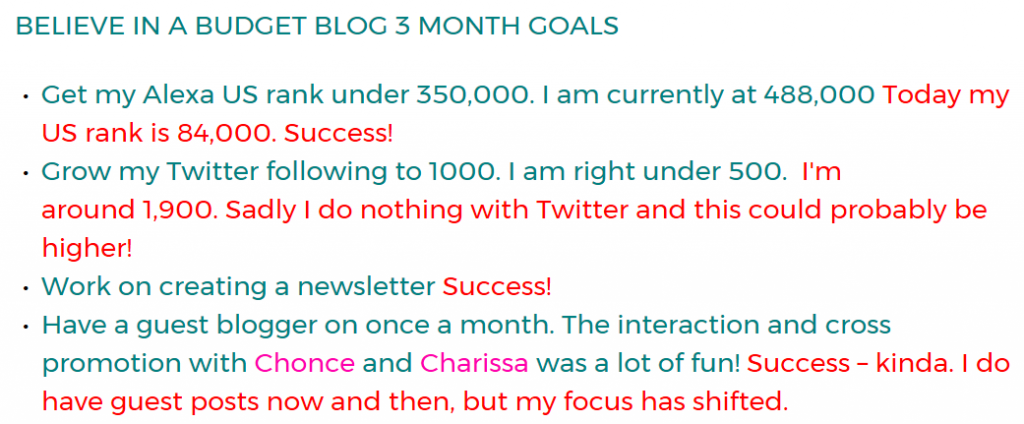
5 Tips for Building Strong Blogging Habits
You’ve started your first blog, and you’re ready to go! After all, with so much to say, it should be easy to churn out quality content at top speed. Unfortunately, as the novelty of the endeavor wears off, so too can your motivation.
Fortunately, maintaining the drive to work on your blog daily is possible when you focus on consistency and routine. When you turn blogging from a choice into a habit, it’s much easier to stick to your goals and build a blog that you can be proud of.
In this post, we’ll provide five tips that will show you how to blog daily. You’ll learn why each one is important and how to implement it effectively.
Let’s get started!
1. Have a Purpose
Without a solid purpose – a reason for blogging – it will be difficult to create content on a regular basis.
That’s why purpose is so important. It guides you on your path, and makes it that much easier to stick to your goals. To find your purpose, here are two tips:
- Determine your end goal. Do you want to turn your blog into a full-time career, or simply raise awareness for a cause you hold dear? No matter your reason, it helps to start at the end to figure out where to begin.
- Know who you are. While it never hurts to push yourself outside of your comfort zone, you should know your own limits. For example, perhaps you’ll never feel comfortable monetizing your blog. That’s fine, but it’s something to consider ahead of time so you can find another purpose more in line with who you are.
Unfortunately, purpose won’t always keep you going. That’s where the next tip comes in.
2. Make a Commitment
It can sometimes be difficult to keep the bigger picture in mind. That’s why making realistic commitments is your next best step.

A commitment is a promise you make – largely to yourself – that helps you stay focused and on track. When done right, it can hold you accountable while simultaneously creating a positive mindset.
To make a commitment that you’ll stick with, consider these three tips:
- Be realistic. Realistic commitments – ones that aren’t a stretch for you to keep – make the process more enjoyable.
- Make it worthwhile. Whether you decide to reward yourself for sticking to your goal, or you create a commitment that has its own rewards built in (such as creating a full-time career online), make it worth doing.
- Have a set endpoint. Choose a set amount of time (for example, three months) and commit yourself to achieving certain goals within that time. You’ll be amazed how quickly the time flies, and it will give you a chance to reevaluate before forging ahead.
For a bit of extra motivation, consider making a more public commitment. This can be a declaration to family and friends, or a promise to your online community.
3. Reserve Time Every Day for Writing
If you want to stick to your commitment, it’s important to set time aside every day for doing so.
Why? In the beginning, it’s good to consider blogging as a job. That doesn’t mean you shouldn’t enjoy blogging, but you want to treat it seriously.
For the best results, you’ll need to consider your best time for writing. Here’s how:
- Determine when you’re at your peak. At what point in your day are you raring to go? Are you a night owl or an early bird?
- Determine when you’ll have the fewest interruptions. Interruptions can lower productivity and leave you feeling less than motivated. Pick a time when distractions are at an absolute minimum.
- Keep it consistent. It’s good to keep your writing time as consistent as possible from day to day. This makes it part of your routine, turning it from something you choose do into an unbreakable habit.
You make time for what’s important to you. So if blogging is something you’re really serious about, it’ll be something that you’ll have no trouble fitting into your day.
4. Create a Content Plan
With the time now set aside, it’s important that you aim to use it effectively. To do this, we recommend creating a content plan.
This enables you to lay out what content you intend to create and when. While it may seem to take the spontaneity out of blogging, it doesn't need to be set in stone, and can simply serve as a guide as you grow your blog.
Of course, the most effective content plan is one that’s tailored to fit your needs. Here are a few steps to get you started:
- Find a reliable source of content ideas. While your mind may be brimming with ideas now, the well of inspiration can easily dry up. It helps to include a solution for this in your content plan.
- Determine posting frequency. You want to pick a posting frequency that fits your goals, but that also fits your time commitment. You can always adapt this as you get more familiar with how long it takes for you to produce and promote your content.
- Create a planning sheet. This will be your go-to guide each time you sit down to write. There are plenty of tools you can use to create one – both paid (such as CoSchedule and Trello) and free (such as HubSpot and Google Docs).
As your blog evolves, so too will your content plan. This means you should update it every few months to ensure it meets your current needs.
5. Join a Blogging Community
While many bloggers cherish the independence that writing provides, everyone could use a bit of help and support from time to time.
That's where blogging communities come in. No matter where you are on your journey, they can keep you engaged, hold you accountable, and help you feel fulfilled.
You have two main options when it comes to finding a blogging community. They are:
- Explore niche communities. Whether your topic is fashion, marketing, or lifestyle, there are plenty of niche communities you can explore. Many exist as groups within social media platforms such as Facebook or Google+.
- Join a general community. Bloggers face many of the same struggles no matter their niche. That's why it helps to join general blogging communities.
While a community can be a great thing to be a part of, it can quickly become overwhelming. This means it’s important that you take the time to choose the group that’s right for you, and only join as many as you can reasonably handle.
Conclusion
While starting a blog can be exciting, motivation can waver over time. That’s where learning how to blog daily through consistency, careful planning, and support come in. They pick up the slack where motivation left off and help you bring blogging into your daily life.
In the above post, we outlined five tips you can implement to make blogging a regular part of your life. To recap, they are:
- Have a purpose.
- Make a commitment.
- Reserve time every day for writing.
- Create a content plan.
- Join a blogging community.
What's Next?
Do you have any other tips or questions about how to blog daily? Let us know in the comments section below!
Or
Sign up for the FREE 30 Day Blog Challenge. We will give you small tasks daily for 30 days to help you start your blog and begin creating strong blogging habits.
Image credit: Pixabay.

Hi,
I have a few questions. When it comes to blogging frequency– can you give us some examples of determining how much time we should invest in a blog post? I’ve been following some of your links, and checking out other sites, and I saw that one blogger doing finance and work advice for mom’s was discussing whether or not to have comments active depending on the volume of readership. In this she referenced that if she had to spend 2 hours a day responding to comments, it was not worth it for her to enable them, because that was the average time she spent writing a blog post.
Are there guidelines for just how much time one should generally expend on research, obtaining links and graphics, outlining, writing, and then editing a post? I understand that this can vary depending upon the depth of knowledge and type of post, as well as the average word length for your blog, but some basic parameters would be helpful.
Second question:
What exactly is a planning sheet? Is this an extension of our time blocking on Google Calendar, but for a daily writing session? I clicked the links you posted, but they go to the main home page of the service, and there’s no example of what I should be putting on my planning sheet. Is this a to do list to prep the article? The outline or template for writing it? Or is this just a kind of rough estimate of when you want to post the various ideas you’ve generated, going forward for the next month or several months?
Final Quesiton
Blogging communities–
Again, I did a google search and found a TON of these. Wow, never knew they existed, so thank you for the new knowledge! Since you mention that these can quickly becoming overwhelming, one should choose carefully about which one or two to join. In keeping with your advice, do you have reviews or brief synopsis of some of the better blogging communities, particularly those communities which might be aimed at either beginning bloggers, or based upon the niche genre/market they are built around?
Thank you so much– I’m learning a great deal. Though the lessons are taking me a good deal more time than an hour a day because I’m such a neophyte to all this online slant– even the writing is different form is very different from what I’ve been used to writing longer papers, articles or essays, and plays. I appreciate the opportunity to expand my skill set!